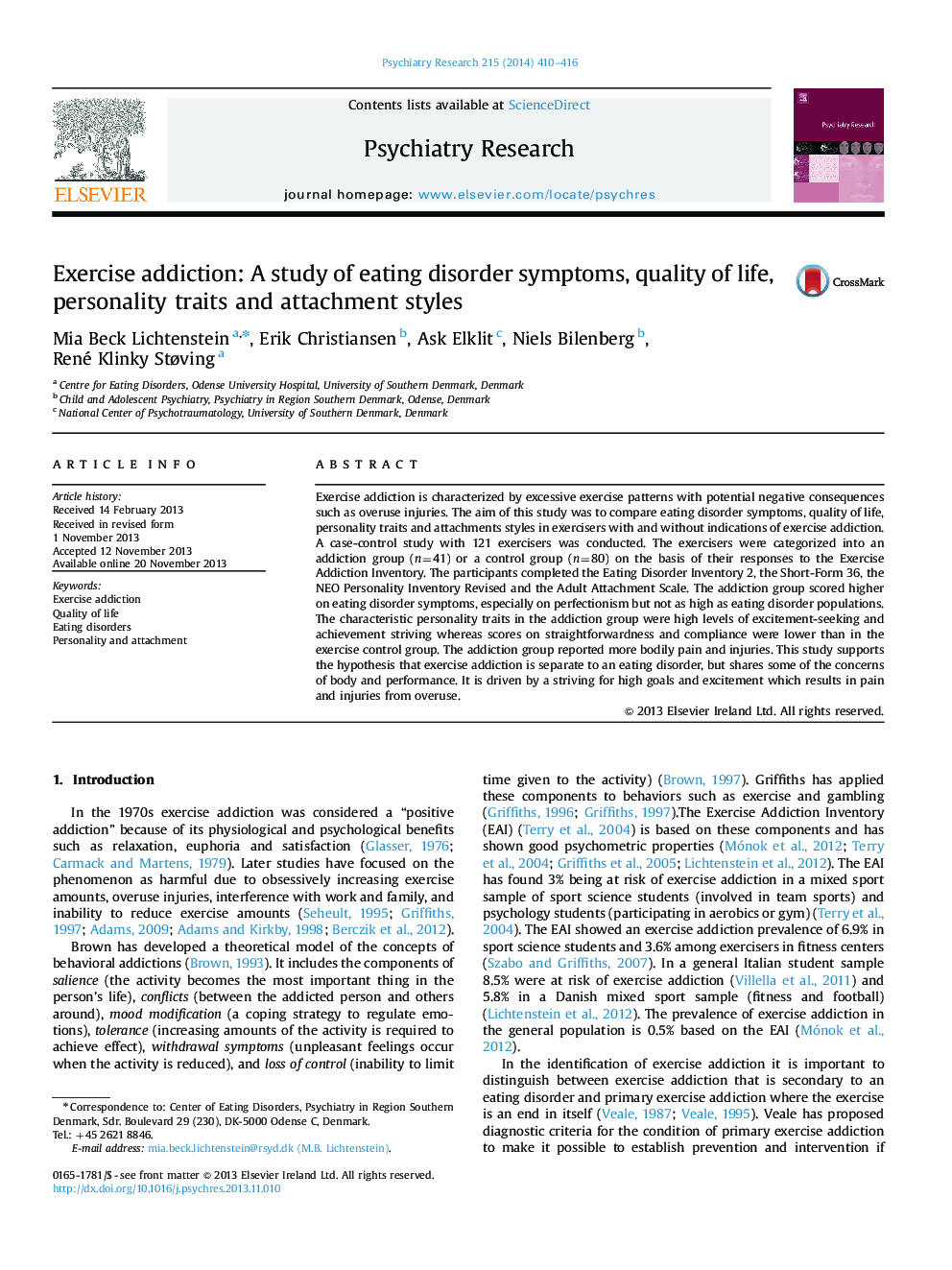| Article ID | Journal | Published Year | Pages | File Type |
|---|---|---|---|---|
| 333066 | Psychiatry Research | 2014 | 7 Pages |
Exercise addiction is characterized by excessive exercise patterns with potential negative consequences such as overuse injuries. The aim of this study was to compare eating disorder symptoms, quality of life, personality traits and attachments styles in exercisers with and without indications of exercise addiction. A case-control study with 121 exercisers was conducted. The exercisers were categorized into an addiction group (n=41) or a control group (n=80) on the basis of their responses to the Exercise Addiction Inventory. The participants completed the Eating Disorder Inventory 2, the Short-Form 36, the NEO Personality Inventory Revised and the Adult Attachment Scale. The addiction group scored higher on eating disorder symptoms, especially on perfectionism but not as high as eating disorder populations. The characteristic personality traits in the addiction group were high levels of excitement-seeking and achievement striving whereas scores on straightforwardness and compliance were lower than in the exercise control group. The addiction group reported more bodily pain and injuries. This study supports the hypothesis that exercise addiction is separate to an eating disorder, but shares some of the concerns of body and performance. It is driven by a striving for high goals and excitement which results in pain and injuries from overuse.
